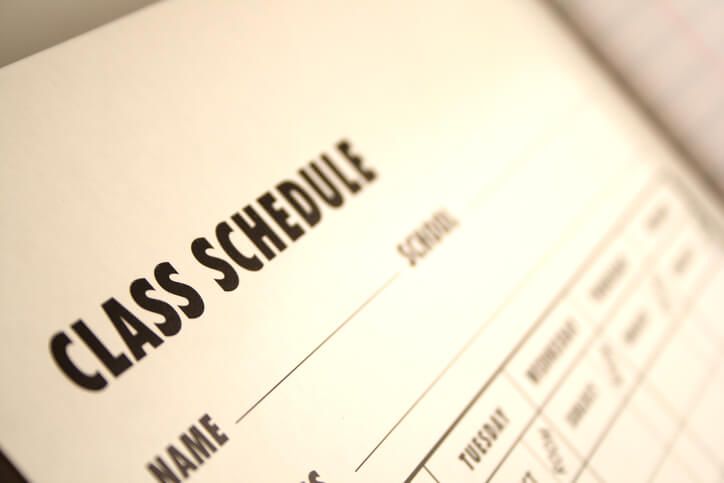This page is licensed under Creative Commons under Attribution 4.0 International. Anyone can share content from this page, with attribution and link to College MatchPoint requested.
3 Common Mistakes High School Students Make When Choosing Classes
It's that time of year again - high school students are choosing their classes for the upcoming semester. While it can be exciting to plan out your schedule for the next few months, it's important to avoid making some common mistakes when selecting your courses. In this blog post, we'll share three of the most common mistakes students make when picking classes, and offer some helpful advice on how to avoid them.

Not doing their research - high school students should take the time to research what classes they need to take, and not just choose based on what their friends are taking.
High school students should make sure they are taking all their required classes in order to prepare for college and their desired career paths. Taking the time to research what classes need to be taken can help save a lot of time, frustration, and money in the long run. For example, calculus is required for many STEM fields at the college level - if a student didn't know this ahead of time, they could end up behind when they enter college. The same is true of required foreign language classes. Make sure high school students understand the required courses or at least look into them so that they can discuss their options with the guidance counselors. Doing research now can make all the difference in being prepared for whatever challenges lie ahead.
Not considering their future plans - it's important to consider what you want to do after high school when choosing your classes, as some classes may be more beneficial than others.
It may be easy to look at situations in the present and make decisions without giving thought to the future, but considering college majors and long-term academic plans is an important step when choosing classes in high school. Every class carries its own weight, and some will be more beneficial than others in preparing you for college or a career path. Therefore, it's beneficial to think ahead and consider which classes will give you the foundation to continue academia as a college major or pursue related professional skills. Making careful choices and having an overall plan will help ensure you're ready for college successfully!
Taking classes that are too rigorous or not rigorous enough
Taking AP and honors classes can be a great way to challenge yourself academically, and it’s important to strive for rigor in your course schedule. However, it's essential to find a reasonable balance between challenging yourself and not taking on too much - or too little - so that you can succeed in all of your classes. If APs are becoming overwhelming, talk to your teachers or guidance counselor about potential alternative options that could help of you still be academically rigorous while also providing some relief. Similarly, if you feel like some of your classes aren’t challenging you enough, ask the same people for suggestions on how you might be able to up the level of rigor. Ultimately seeking out the right balance between APs and other regular classes can make an enormous difference in how successful you are as a student.
High school can be a tough time for students, with the pressure to do well and make sure they're on track for their future. It's important that students take the time to research their classes, so that they can choose ones that will benefit them both now and in the future. If you're struggling with class choices or feel like you might be taking too many rigorous or not enough challenging classes, reach out to your guidance counselor for help. They'll be able to assist you in making decisions about your courses so that you can succeed both in high school and beyond.


